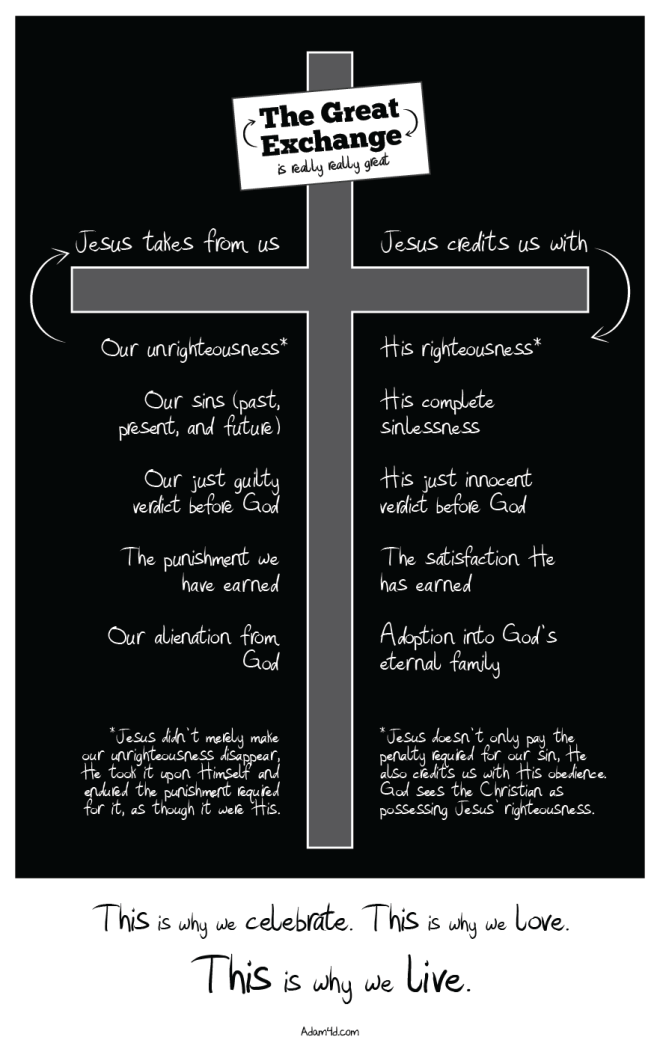 ALLEINE: O miserable man, what a deformed monster has sin made you! God made you “little lower than the angels”–but sin has made you little better than the devils!
ALLEINE: O miserable man, what a deformed monster has sin made you! God made you “little lower than the angels”–but sin has made you little better than the devils!
BEART: There is a certain infiniteness in sin, because it is against an infinite God, which therefore brings a punishment of infinite duration, because it cannot be atoned for by finite creatures.
BROOKS: Did God leave us to act according to our sinful natures–we would all be incarnate devils, and this world would be an absolute Hell!
There is no little sin–because there is no little God to sin against.
EDWARDS: You contribute nothing to your salvation–but the sin which made it necessary!
Never did God so manifest His hatred of sin, as in the death and suffering of His only begotten Son.
FLAVEL: Christ is not sweet–until sin is made bitter to us!
If God should damn you to all eternity–your eternal sufferings could not satisfy for the evil that is in one vain thought! O the depth of the evil of sin!
HODGE: Original sin is the only rational solution of the undeniable fact of the deep, universal and early manifested sinfulness of men in all ages, of every class, and in every part of the world.
JAMES: The torments of the bottomless pit are not so dreadful a demonstration of God’s hatred of sin, as the agonies of the cross!
LOVE: Sin is worse than Hell, because sin made Hell to be Hell.
MANTON: Sin is sweet in commission, but bitter in its wages!
The more affected we are with our sinful misery–the fitter we are for Christ’s marvelous mercy.
MASON: Sin digs graves for bodies, and kindles Hell for souls!
A man can never leave sin thoroughly, until he loathes it heartily.
Go to Golgotha and see what sin did there!
Christ did not die for sin, that we might live in sin.
The sins of the wicked anger Christ, the sins of His people grieve Him.
NEWTON: The more vile we are in our own eyes–the more precious Christ will be to us!
Sin cannot be hated for itself–until we have seen the malignity of it in Christ’s sufferings!
OWEN: The seed of every sin–is in every heart!
Christ’s blood is the great sovereign remedy for sin-sick souls!
I do not understand how a man can be a true believer–in whom sin is not the greatest burden, sorrow and trouble!
PRICE: We drown our sins in the Red Sea of Christ’s blood!
RYLE: Christ is never fully valued, until sin is clearly seen.
SIBBES: The depths of our misery–can never fall below the depths of God’s mercy!
Sin is not so sweet in the committing of it–as it is bitter in the reckoning of it.
It is evident that our conversion is sound–when we loathe and hate sin from the heart.
SPURGEON: If Christ has died for me–then I cannot trifle with the sin which killed my best Friend!
What sin is worth being damned for?
If you have lived like the wicked–then you will die like the wicked, and be damned like the wicked!
Look to the cross, and hate your sin–for sin nailed your Well-Beloved to the cruel tree!
Sin is self-damnation!
As salt tinges every drop in the ocean–so does sin affect every atom of man’s nature!
There is no cure for the love of sin–like the blood of Christ!
WATSON: Sin has the devil for its father, shame for its companion, and death and damnation for its wages!




 Christ’s death is the Christian’s life. Christ’s cross is the Christian’s title to heaven. Christ “lifted up” and put to shame on Calvary is the ladder by which Christians “enter into the holiest,” and are at length landed in glory. It is true that we are sinners–but Christ has suffered for us. It is true that we deserve death–but Christ has died for us. It is true that we are guilty debtors–but Christ has paid our debts with His own blood. This is the real Gospel! This is the good news! On this let us lean while we live. To this let us cling when we die. Christ has been “lifted up” on the cross, and has thrown open the gates of heaven to all believers.
Christ’s death is the Christian’s life. Christ’s cross is the Christian’s title to heaven. Christ “lifted up” and put to shame on Calvary is the ladder by which Christians “enter into the holiest,” and are at length landed in glory. It is true that we are sinners–but Christ has suffered for us. It is true that we deserve death–but Christ has died for us. It is true that we are guilty debtors–but Christ has paid our debts with His own blood. This is the real Gospel! This is the good news! On this let us lean while we live. To this let us cling when we die. Christ has been “lifted up” on the cross, and has thrown open the gates of heaven to all believers.
